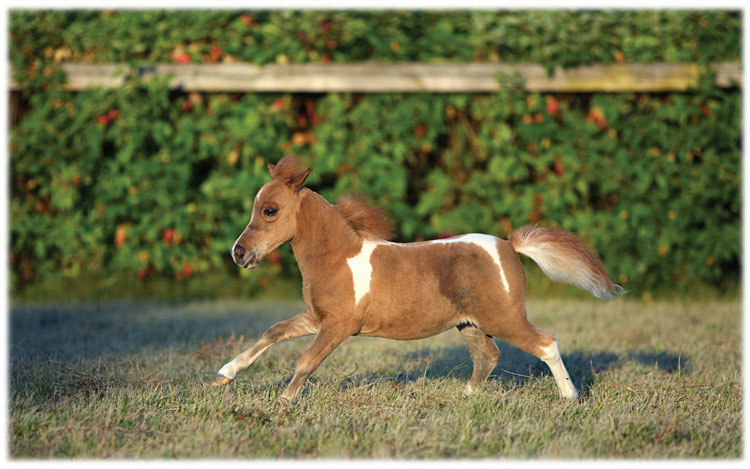Miniature horses have their own special care and considerations
FOR ANYONE who’s ever dreamed about owning a horse, would the considerations include miniature, or dwarf, horses? What follows are 10 key questions about miniature horses and an answer to each of them.
WHERE CAN I BUY A MINIATURE HORSE?
Miniature horses are very common, and it is not necessary to spend a large amount of money to buy a miniature horse from a breeder. The Guide Horse Foundation (www.guidehorse.com) recommends that you consider adopting an unwanted, abused, or rescued miniature horse from a horse rescue organization; buying a miniature horse from an auction or an Internet miniature horse sale; or finding owner-posted Web notices about miniature horses for sale.
HOW LONG DO THEY LIVE?
They commonly live to be 25 to 35 years old, On average, miniature horses might live one-third longer than large horses.
WHAT DO THEY EAT?
Natural foods like grasses and hay are common for miniature horses, and a small quantity of crimped oats completes the daily nutritional regimen. In addition, they should have access to a daily source of free choice salt and trace minerals. An easy way to provide this is to give them access to a brick of plain salt and a brick of trace mineral salt. They also should always have access to clean and cool water.
DO THEY HAVE WEIGHT PROBLEMS?
The owner must be very careful to avoid overfeeding a miniature horse or to feed it too many treats. The diet of a miniature horse must be carefully monitored. Miniature horses should never eat people food, and some miniature horses need low-feed muzzles to keep them from getting obese. A veterinarian should be consulted to determine the exact nutritional needs of each individual horse.
HOW MUCH VETERINARY CARE DO THEY REQUIRE?
Vet care for a miniature horse is comparable to that of a dog. Yearly immunizations are required, and bimonthly deworming is required to keep the horse healthy and protected from disease. A dewormer can be administrated orally by the owner. The mini horse also needs a farrier to trim the hooves every six to eight weeks.
DO THEY SMELL BAD?
The natural odor of a miniature horse is not strong. It can be kept virtually odor free with regular grooming and periodic bathing. Due to a danger from falling, it is not recommended that a miniature horse use a shower or bath unless it is wearing rubber shoes or the surface has a nonslip coating.
DO THEY BITE OR KICK?
In their natural setting, miniature horses naturally will bite and kick as a means of establishing dominance within their herd, but can be trained to not do that.
DO THEY PLAY?
As foals, miniature horses play extensively, running and chasing other foals, and playing with large balls. As these horses mature, they lose interest in play, but the mini horse still can enjoy games. One of the favorite games for adult miniature horses is bobbing for apples. You simply fill a toddler’s swimming pool with six inches of water and drop in two apples.
DO THEY GET FLEAS?
No. Fleas have a natural aversion to the skin of miniature horses.
DO PEOPLE SHOW THEM?
Yes. There are dozens of independent miniature horse show registries, each with its own standards and rules.
CREDIT
story by GRACE BOGGESS

